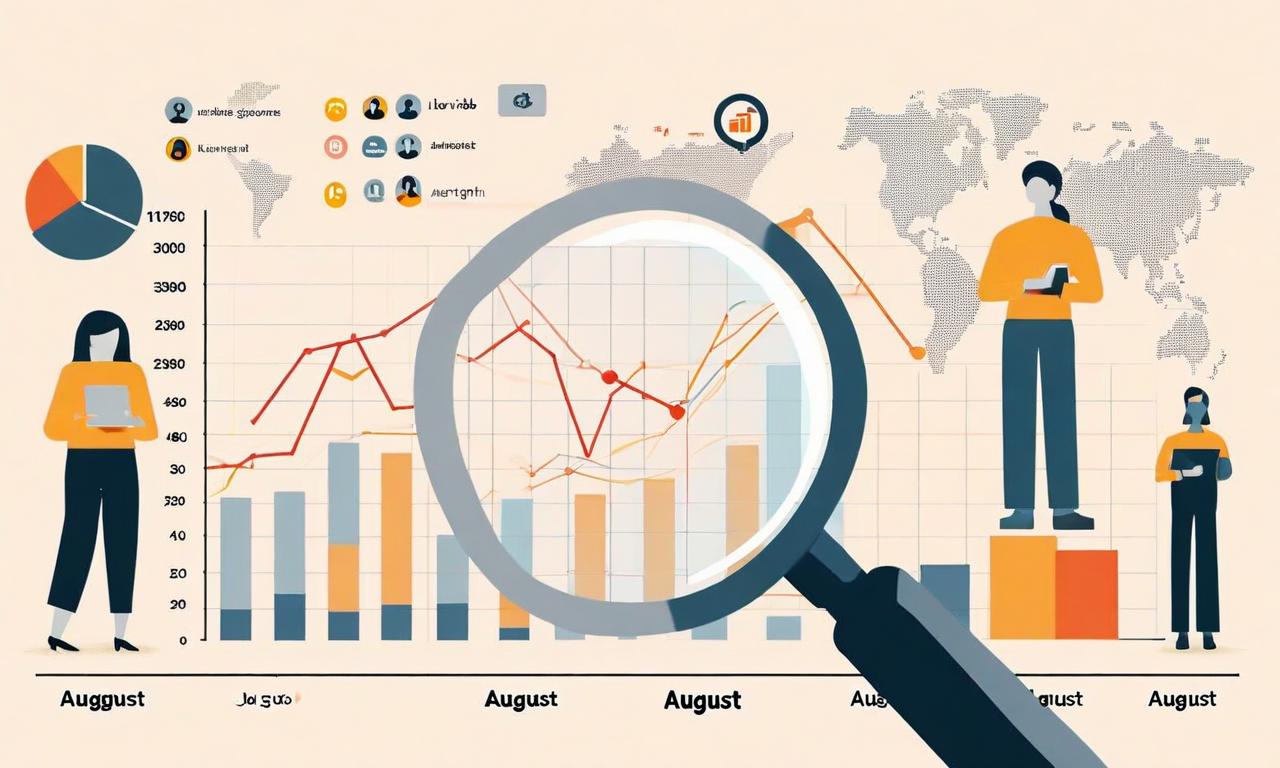U.S. Job Growth Slows Dramatically in August, Falls Short of Expectations
The U.S. economy added only 22,000 nonfarm jobs in August, a significant drop from July's revised 73,000 jobs and far below economists' projections of 75,000. This marks a 70% decrease in new job creation month-over-month, potentially signaling a cooling labor market. The unexpected slowdown could have broader implications for the U.S. economy and may influence future decisions on monetary policy and economic stimulus measures.

*this image is generated using AI for illustrative purposes only.
The U.S. labor market showed signs of cooling in August, with job growth slowing significantly and falling well below economists' projections. According to the latest employment report, nonfarm payrolls increased by a mere 22,000 jobs last month, marking a substantial deceleration from July's figures and disappointing market forecasts.
Key Highlights
- August Job Growth: The U.S. economy added just 22,000 nonfarm jobs in August.
- Significant Decline: This represents a sharp drop from July's revised figure of 73,000 jobs.
- Missed Expectations: The August numbers fell far short of the 75,000 new jobs economists had anticipated.
Slowdown in Employment Growth
The August employment data reveals a considerable slowdown in job creation, raising questions about the overall health of the labor market. The addition of only 22,000 jobs is a fraction of what was seen in previous months and significantly below market expectations.
Comparison to Previous Month
The decline in job growth is particularly stark when compared to July's performance. July's job gains were revised to 73,000, meaning August's figure represents a 70% decrease in new job creation month-over-month.
Market Expectations vs. Reality
Economists and market analysts had projected a more robust job market for August, with expectations set at 75,000 new jobs. The actual figure of 22,000 falls short by a considerable margin, potentially signaling a shift in labor market dynamics.
Implications for the Economy
This unexpected slowdown in job growth could have broader implications for the U.S. economy. It may indicate that businesses are becoming more cautious about hiring, possibly due to economic uncertainties or changing market conditions.
As the Federal Reserve and policymakers closely monitor employment data to gauge economic health, this report could influence future decisions on monetary policy and economic stimulus measures.
While one month of data does not necessarily indicate a trend, the significant miss in job creation will likely be a topic of discussion among economists and policymakers in the coming weeks. Observers will be keenly watching upcoming economic indicators to determine whether August's weak job growth is an anomaly or the beginning of a more prolonged slowdown in the labor market.



















